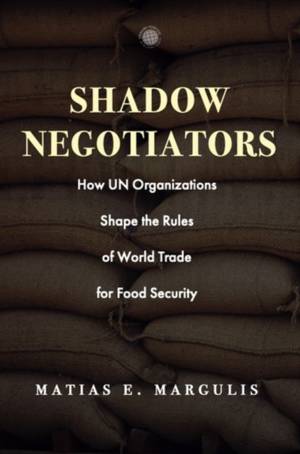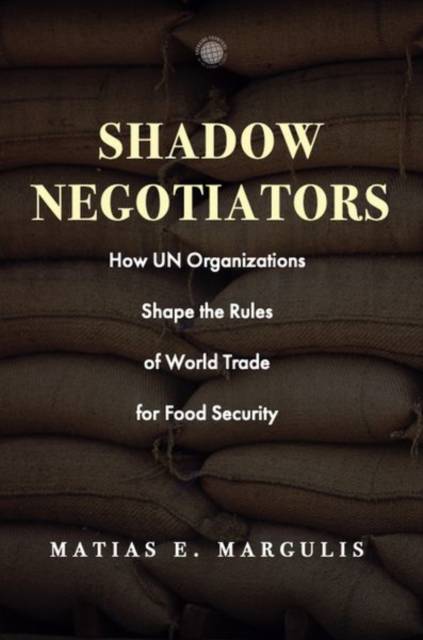
- Retrait gratuit dans votre magasin Club
- 7.000.000 titres dans notre catalogue
- Payer en toute sécurité
- Toujours un magasin près de chez vous
- Retrait gratuit dans votre magasin Club
- 7.000.000 titres dans notre catalogue
- Payer en toute sécurité
- Toujours un magasin près de chez vous
Shadow Negotiators
How Un Organizations Shape the Rules of World Trade for Food Security
Matias E MargulisDescription
Shadow Negotiators is the first book to demonstrate that United Nations (UN) organizations have intervened to influence the discourse, agenda, and outcomes of international trade lawmaking at the World Trade Organization (WTO). While UN organizations lack a seat at the bargaining table at the WTO, Matias E. Margulis argues that these organizations have acted as "shadow negotiators" engaged in political actions intended to alter the trajectory and results of multilateral trade negotiations. He draws on analysis of one of the most contested issues in global trade politics, agricultural trade liberalization, to demonstrate interventions by four different UN organizations--the Food and Agriculture Organization (FAO), the World Food Programme (WFP), the Office of the High Commissioner for Human Rights (OHCHR), and the Special Rapporteur on the Right to Food (SRRTF).
By identifying several novel intervention strategies used by UN actors to shape the rules of global trade, this book shows that UN organizations chose to intervene in trade lawmaking not out of competition with the WTO or ideological resistance to trade liberalization, but out of concerns that specific trade rules could have negative consequences for world food security--an outcome these organizations viewed as undermining their social purpose to reduce world hunger and protect the human right to food.
Spécifications
Parties prenantes
- Auteur(s) :
- Editeur:
Contenu
- Nombre de pages :
- 292
- Langue:
- Anglais
- Collection :
Caractéristiques
- EAN:
- 9781503633520
- Date de parution :
- 07-02-23
- Format:
- Livre relié
- Format numérique:
- Genaaid
- Dimensions :
- 155 mm x 231 mm
- Poids :
- 557 g







